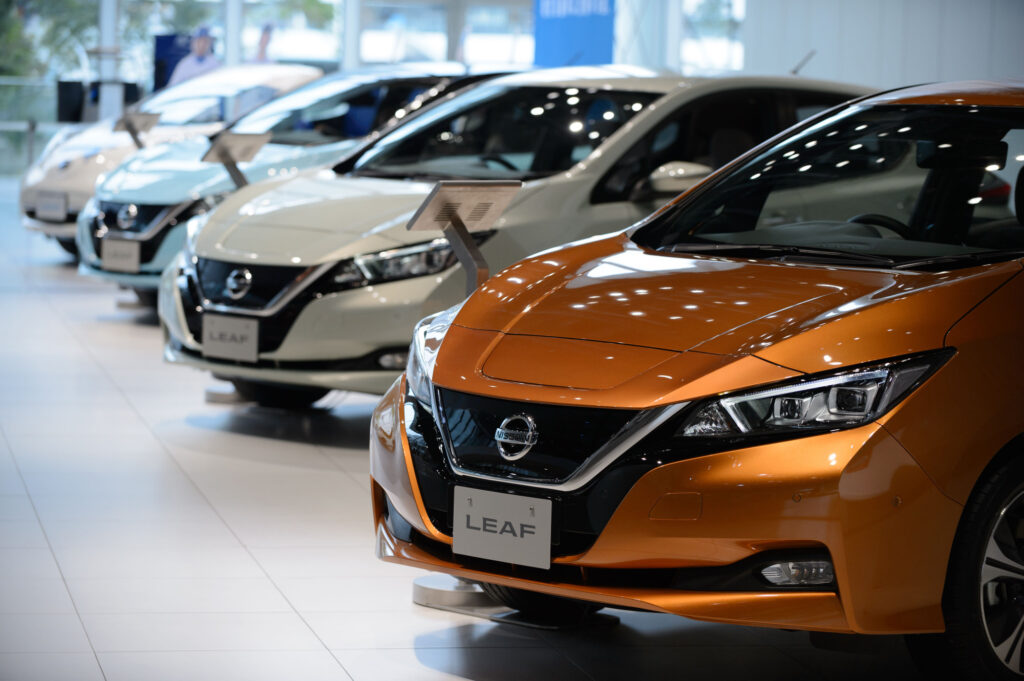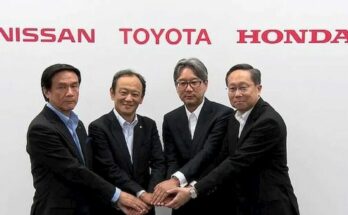Global electric vehicle (EV) sales in 2024 have shown mixed trends. While the US and China experienced strong growth, European markets faced slowdowns, with German sales plunging by 28% and Australia reporting similar declines.
Now, Japan has joined the list, recording a steep 33% drop in EV sales—the first decline in four years. With only 59,736 units sold, EVs now make up less than 2% of total vehicle sales in Japan, a striking contrast to global markets where sales continue to rise, albeit at a slower pace than many automakers had anticipated.
Related: Japan’s Automakers Unite to Reclaim Their Edge in the Global Market
According to a report from Nikkei Asia, Japan’s EV market leaders faced significant challenges in 2024. Nissan, which holds half of the country’s EV market share, saw sales plummet by 44% to 30,749 units—their lowest since 2021. Toyota fared slightly better, with a modest 10% rise in sales of its bZ4X EV (priced at 5.5 million yen, or $34,755), but its overall EV sales still dropped by 30%. Mitsubishi Motors experienced a staggering 64% decline, while Honda discontinued its Honda e model, with no successor planned.
Why Are EV Sales Struggling in Japan?
The primary culprit behind Japan’s EV slump is the nation’s strong preference for hybrid vehicles. Hybrids continue to dominate due to their lower purchase costs compared to fully electric vehicles. Coupled with limited charging infrastructure, many Japanese consumers remain hesitant to make the switch to EVs.

In contrast, foreign automakers have capitalized on this slow transition. Chinese EV giant BYD saw sales surge by 54%, thanks to the popularity of its Seal sedan and the affordable Dolphin EV, priced at just 2.99 million yen. While BYD still lags behind local giants like Nissan, its sales have now reached 40% of Tesla’s, which remains the leading imported EV brand in Japan. South Korea’s Hyundai is also making strides, with EV sales increasing by 24%, driven by updates to its Ioniq 5 lineup, and plans to launch a smaller, budget-friendly EV in 2025.
What’s Next for Japanese Automakers?
Although Japanese brands were trailblazers in hybrid technology, their slow adoption of the EV revolution is becoming a costly misstep. Foreign competitors are rapidly filling the void, both domestically and globally, by catering to price-conscious buyers with models that offer strong value and advanced technology.
Related: Japan is the Biggest Laggard in Electric Vehicles
For now, hybrids continue to dominate Japan’s roads, but the tide is shifting. Global EV sales rose 25% in 2024 compared to 2023 and are projected to grow another 30% this year. As international players like BYD and Hyundai ramp up their efforts, Japanese automakers face mounting pressure to adapt or risk being left behind in the race for electrification.

Responsible for delivering local & international automotive news.




